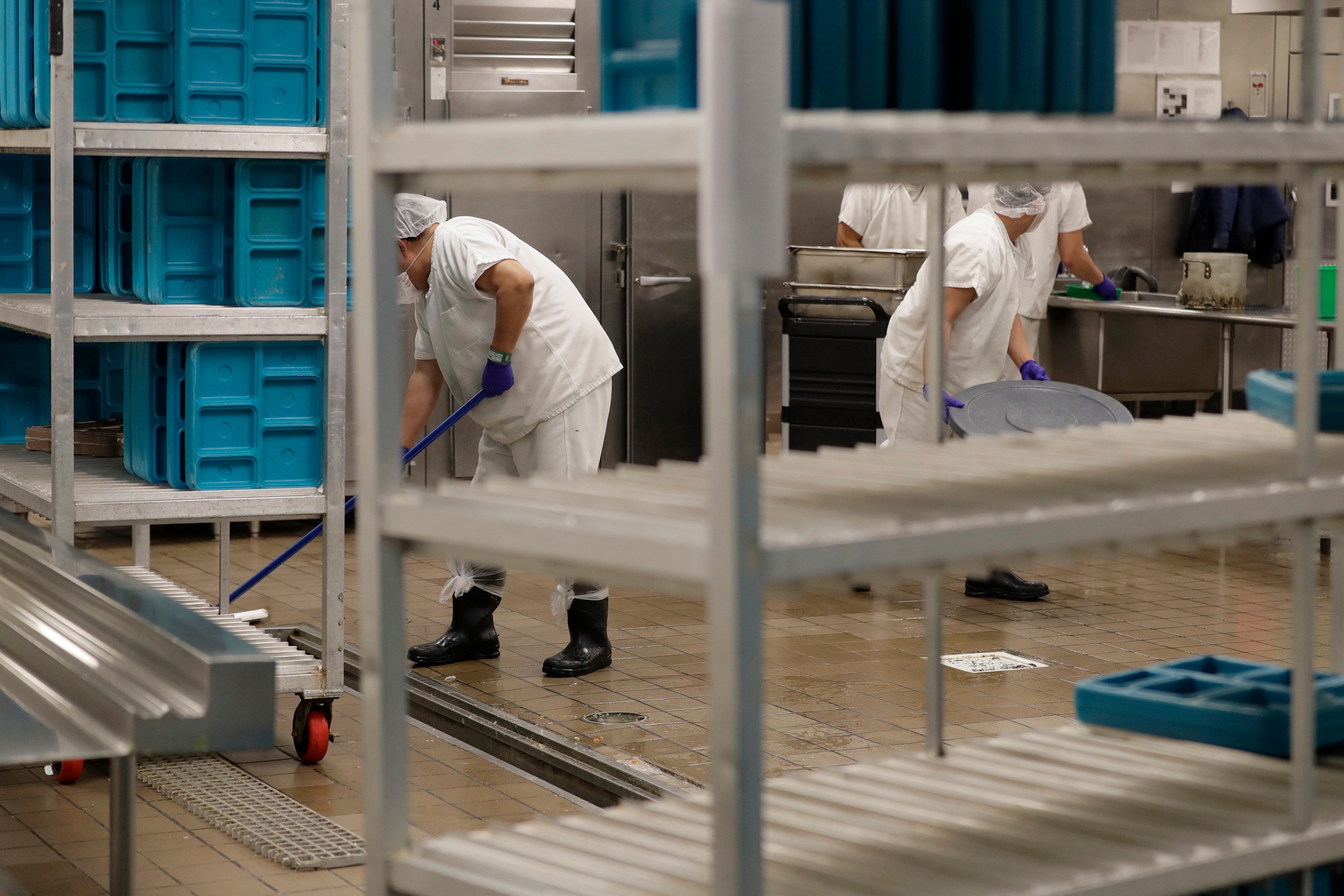Company halts work program instead of upping detainee pay
The company that runs a for-profit immigration jail in Washington state has suspended its detainee work program, rather than pay the detainees minimum wage for cooking, cleaning and other tasks

Brazilian Jose Soares has been locked up in one of the United States largest immigration detention centers for the past two years, passing much of his time cleaning bathrooms and buffing floors at a rate of $1 a day.
But last week, a federal jury ruled that Soares and other detainees who cook, clean, do laundry and cut hair at the for-profit lockup in Tacoma were entitled to Washington s minimum wage, $13.69 an hour. The multibillion-dollar company that owns the jail was ordered to pay more than $23 million in back pay and unjust profits to current and former detainees and to Washington state.
The guards, Soares said, then delivered a message: No more cleaning.
Rather than pay the detainees minimum wage, the Florida-based GEO Group suspended the Voluntary Work Program while it appeals.
Neither the company nor U.S. Immigration and Customs Enforcement, which contracts it to house the detainees, would answer questions from The Associated Press this week about the suspension.
Soares, two other detainees and activists who monitor the facility south of Seattle told the AP that much of the sanitation work they used to perform is no longer being done regularly.
“It got really gross — nobody cleaned anything,” Ivan Sanchez, a 34-year-old detainee from Jalisco, Mexico, said in a phone interview from the jail. “We pick up after ourselves, but nobody sweeps or mops. The guards were saying it wasn't their job to clean the toilets. ... It caused a lot of animosity between the detainees and the officers because of that.”
Further, they said, not being able to work makes it harder for detainees to buy extra food at the center's commissary, supplementing what they consider to be inadequate meals provided by GEO.
While detainees are looking forward to a potential payout, “there's a lot of people in here that that dollar makes a difference,” Soares said. While he has relatives outside who provide him money to spend at the commissary, he said, he would use his earnings every week to buy five or six ramen noodle packages for other detainees.
The detention center — officially called the Northwest ICE Processing Center — can house up to 1,575 detainees, though the population has been greatly reduced during the pandemic and numbered about 400 last month. Detainees there are not being punished for any crimes, but held in civil custody while the government sorts out their immigration status or prepares to deport them.
Two lawsuits were filed in 2017 over detainee pay — one by Washington Attorney General Bob Ferguson, and one by attorneys for the detainees. They accused GEO of profiting on the backs of captive workers.
The cases were consolidated for trial, and a U.S. District Court jury ruled on Oct. 27 that the detainees were entitled to minimum wage. It ordered GEO to give more than 10,000 current and former detainees $17.3 million in back pay dating to 2014. Judge Robert Bryan further ruled this week that the company had unjustly enriched itself and must cough up $5.9 million to Washington state.
GEO asked the judge Thursday to put the decisions on hold pending an appeal. The corporation wrote that it has enough money on hand “to pay the Judgments twenty times over,” but said it disagreed with the decisions.
In a news release, the company pointed to a March ruling against detainees at a New Mexico facility owned by the nation's other main private immigration detention contractor, CoreCivic. GEO and CoreCivic own and operate scores of lockups around the country.
A federal appeals court panel in that case found the detainees were not entitled to minimum wage because they were “not in an employer-employee relationship but in a detainer-detainee relationship.”
Washington's minimum wage law says residents of state, county and municipal detention facilities are not entitled to minimum wage, but the law contains no such exception for private, for-profit jails.
ICE requires private immigration detention contractors to offer voluntary work programs as a way to reduce detainee idleness, with pay set at “at least” $1 per day. However, the companies are also required to abide by other federal, state and local laws — including Washington's Minimum Wage Act, the attorney general and lawyers for detainees argued.
On Oct. 29, GEO received permission from ICE to suspend the work program, court documents show.
Some detainees were given a GEO memo that day explaining they could no longer perform the work they used to do; the memo falsely said ICE had suspended the work program, according to an image provided to the AP.
The three detainees the AP interviewed, who are all in the same unit, said they had not seen the memo. Two said they had noticed more guards than usual working in the kitchen to prepare food, and one, Venezuelan Victor Fonseca, 40, said he at one point saw a guard mopping the floor in the showers.
Soares, 44, from the state of Goias in central Brazil, used to work nightly 12 a.m.-4 a.m. shifts cleaning and buffing floors. He said that by last Saturday, the floors and bathrooms in his unit, which then housed 32 men, were so grimy that he asked to be allowed to clean them despite the work program's suspension.
Guards agreed, and he spent four hours, unpaid, cleaning, Soares said. No one else was allowed to help him.
Bookmark popover
Removed from bookmarks